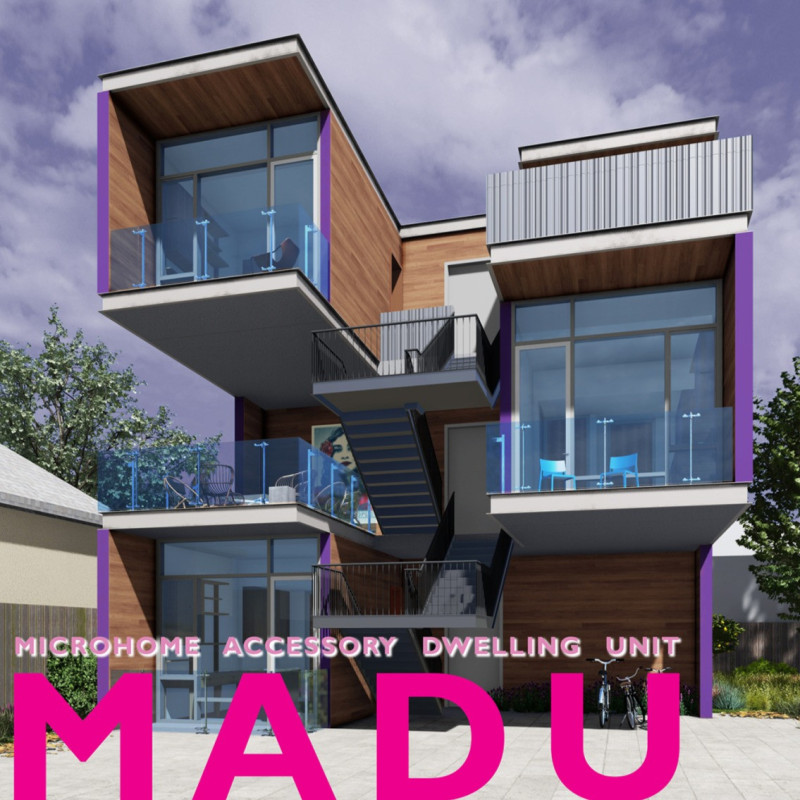5 key facts about this project
The Microhome Accessory Dwelling Unit (MADU) is designed to address housing needs within Los Angeles, a city grappling with a notable shortage of affordable options. This unit provides compact living spaces that fit within existing neighborhoods. The design focuses on community, sustainability, and equity, offering a blend of private and shared areas for residents.
Architecture Concept
MADU seeks to enhance neighborhood life by integrating with occupied sites. This approach not only fosters a sense of community but also diversifies the types of housing available. The layout is intentional, striking a balance between individual privacy and communal interaction. Features like a community garden and shared dining spaces encourage social connections among residents.
Materials and Sustainability
Materials used in the construction include box rib wall panels, wood siding, painted metal, glass railings, metal railings and stairs, and insulated glazing. Each of these choices contributes to the durability and functionality of the living spaces. The design follows the Passive House Standard, striving for energy efficiency and aiming for a net-zero carbon footprint. On-site energy solutions and ecological systems play a vital role in reducing environmental impact.
Accessibility and Equity
Accessibility is a major consideration in MADU’s design. Barrier-free principles are in place to ensure that all residents, regardless of mobility, can comfortably navigate their living spaces. The inclusion of customizable shelving allows for personal touches and flexibility. Private balconies extend the living area outside, promoting interaction with nature while centralized utilities enhance overall usability.
The thoughtful design details of MADU showcase a commitment to practical living. Large overhangs offer shade, improving comfort in warmer months. Additionally, integrated stormwater management supports local ecology. Such features highlight an intention to cultivate both sustainable practices and a connected community life.


















































